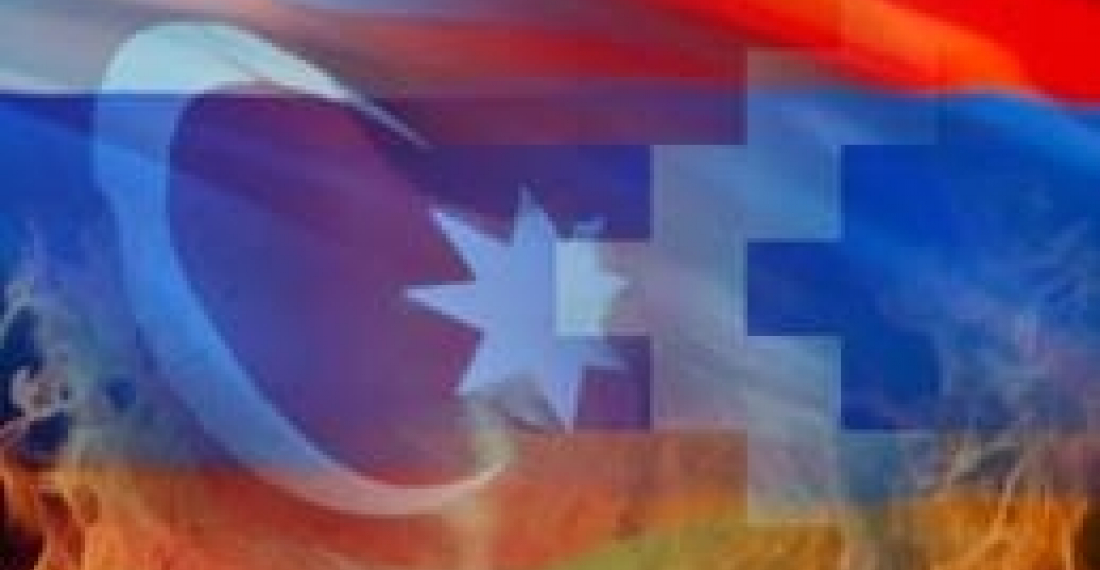В связи с экстрадицией и помилованием Рамиля Сафарова 4 сентября в Степанакерте был созван внеочередной форум карабахских неправительственных организаций, деятельность которых связана с международными программами.
Как сообщает собкор АрмИнфо в Степанакерте, обсудив создавшуюся в связи с эстрадицией Сафарова ситуацию, форум принял решение: выразить полное согласие с заявлением Совета НПО НКР от 1 сентября 2012г.; обратится в Евросоюз и международные организации, работающие в регионе карабахского конфликта, с требованием созвать конференцию южно-кавказских неправительственных организаций с тем, чтобы обсудить вопросы новых вызовов и проблемы безопасности в миротворческих программах. "До решения о созыве конференции мы объявляем мораторий на армяно-азербайджанские встречи и призываем все общественные Армении и НКР присоединиться к этой инициативе", - отмечается в решении форума.
Напомним, что 1 сентября Совет неправительственных организаций Нагорного Карабаха выступил с заявлением в связи с экстрадицией Рамиля Сафарова, в котором оценил данный шаг правительства Венгрии, как "уничижающий общечеловеческие ценности, нарушающий международные нормы и законы собственной страны". "Решение об экстрадиции Сафарова, олицетворяющего собой армяноненавистническую политику Баку, мы расцениваем как поддержку венгерскими властями агрессии и насилия, на которых основана официальная позиция Азербайджана. Это событие - еще одно доказательство декларативности европейских ценностей, когда Права Человека приносятся в жертву сиюминутным экономическим выгодам. Мы требуем, чтобы Евросоюз выразил официальное отношение к вопиющему факту пренебрежения нормами Гуманизма и Права со стороны государства - члена Евросоюза. В противном случае, НПО НКР будут вынуждены рассмотреть вопрос о недоверии Евросоюзу>, - в частности, говорилось в заявлении.
31 августа осужденный в Венгрии на пожизненный срок азербайджанский офицер Рамиль Сафаров был экстрадирован на родину. В тот же день президент Азербайджана Ильхам Алиев своим указом помиловал его, а министр обороны присвоил звание майора, предоставил квартиру. Рамилю Сафарову была выплачена зарплата за восемь лет, а также подарена квартира. В связи с этим президент Армении Серж Саргсян созвал экстренное заседание Совета национальной безопасности и совещание аккредитованных в республике послов и заявил о прекращении дипломатических отношений с Венгрией. 19 февраля 2004 года в Будапеште Рамиль Сафаров ночью зарубил топором спящего армянского офицера Гургена Маргаряна. Оба офицера проходили в венгерской столице курс английского языка в рамках программы НАТО "Сотрудничество во имя мира". Сафарову было предъявлено обвинение по статье 166.2 УК Венгрии (убийство при отягчающих обстоятельствах), предполагающее лишение свободы сроком от 10 до 15 лет или пожизненное заключение. Суд приговорил Сафарова к пожизненному тюремному заключению без права амнистии в первые 30 лет. Судья объяснил свое решение особой жестокостью убийства Сафарова и тем, что последний не раскаялся в совершении преступления.







